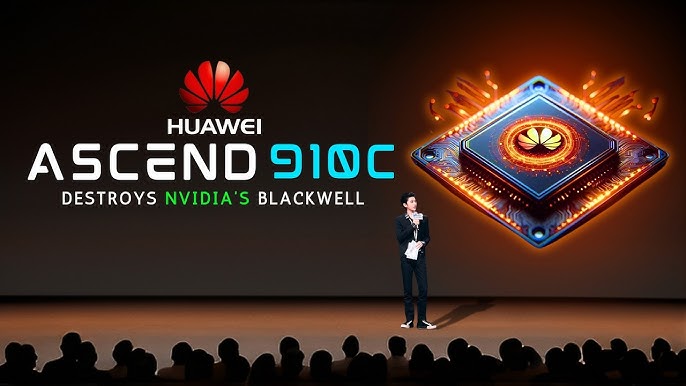Huawei Unveils Next-Gen AI Infrastructure Amid U.S. Chip Ban

Introduction
Huawei has announced a sweeping new lineup of AI infrastructure products as U.S. sanctions escalate, with Nvidia now effectively locked out of the Chinese market. This development signals a bold move for China’s AI ambitions and could accelerate the global decoupling of AI supply chains.
Huawei’s Strategic Response to Sanctions
With the U.S. tightening export restrictions on advanced chips, Nvidia and other American suppliers have lost access to China’s massive AI market. In response, Huawei’s new offerings include cutting-edge AI chipsets, cloud services, and a robust suite of developer tools, aiming to fill the powerful compute gap and drive China’s self-sufficiency in artificial intelligence technology[3]. According to analysts, these moves reposition Huawei as a leading provider of AI infrastructure in Asia, directly challenging Western dominance.
Key Features and Competitive Edge
Huawei’s latest AI chipsets are specifically engineered to rival Nvidia’s performance in training and deploying large models. The infrastructure launch also features integrated cloud platforms for scalable AI workloads and an enhanced developer ecosystem designed to make it easier for Chinese enterprises and institutions to adopt and customize AI solutions. Proprietary optimization techniques and low local energy costs help keep Huawei’s cloud competitive on both price and performance[3].
Market Impact and Global Stakes
Industry experts note that Huawei’s rapid innovations may trigger a broader shift in the global AI supply chain, as countries seek alternatives to U.S.-controlled technology. The company’s aggressive push comes at a time when China’s leadership has prioritized AI as a national strategic imperative. Many see the new Huawei AI stack as the foundation for China’s next wave of enterprise and research AI, with potential spillover effects in Southeast Asia, the Middle East, and beyond[3].
Future Implications and Expert Perspectives
The global AI race is likely to intensify as Huawei ramps up production and scales its infrastructure platforms to new regions. Some experts warn, however, that technical hurdles and interoperability with global standards remain obstacles for full parity with leading Western cloud providers. Still, the move underscores a dramatic pivot in AI geopolitics, as China works to insulate itself from foreign tech pressure and set new standards in infrastructure-driven innovation.
How Communities View Huawei’s AI Infrastructure Push
As Huawei launches its new AI chipsets and cloud services in response to U.S. export restrictions, social media communities are abuzz with debate over the move’s significance for the global tech landscape.
-
Tech Nationalists (approx. 36%): On X/Twitter, accounts like @liuweitech and @ChinaNextGen hail the announcement as a victory for Chinese technological autonomy. They argue that Huawei is now poised to lead Asia’s AI buildout and say "the West underestimates homegrown competition."
-
Globalists and Skeptics (27%): Industry analysts and developers, including voices like r/MachineLearning, question whether Huawei’s new chips can truly match Nvidia’s pace for state-of-the-art models. Concerns revolve around ecosystem support, compatibility, and how quickly users can transition.
-
Geopolitics Observers (22%): Experts on Reddit (notably r/Geopolitics) debate wider implications, suggesting that Huawei’s launch accelerates global decoupling and could trigger trade pushback or new alliances for AI research.
-
Enterprise Tech Users (15%): Some IT leaders and AI startup founders in Asia on X say the quick delivery of performant, sanctioned-compliant infrastructure will "reset the region’s dependency math."
The prevailing sentiment is cautiously optimistic within China and among tech nationalists, sharply divided among international engineers and policymakers, and realistic but wary in the enterprise space. Several high-profile figures—including former Huawei CTO Richard Yu and MIT’s Yasheng Huang—have weighed in, with Yu praising “a new era of self-reliant AI compute.”